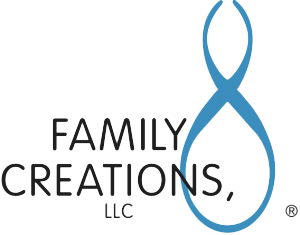How an Experienced LGBTQ Surrogacy Agency Can Help You

Many individuals and couples in the gay, lesbian, bisexual, transgender, or queer communities have dreams of one day being parents to biological children. Fortunately, sperm and egg donation, combined with surrogacy, allow for practical and widely accepted options for becoming biological parents. As a result, surrogacy agencies nationwide are seeing an increased interest from the LGBTQ community in exploring these options for creating a family. Because of the increased demand for egg donation and surrogacy, LGBTQ parents are raising more children than ever.
What is the LGBTQ Surrogacy Process Like?
In general, the surrogacy process for LGBTQ clients is the same as any surrogacy, where an egg donor is used to retrieve vital eggs that are then fertilized and implanted in the surrogate of choice using in vitro fertilization (IVF). Male couples will need to decide who is genetically related to the child by determining whose sperm will be used. Intended fathers may want to use one partner’s sperm for one child and the other partner’s sperm for a second child, allowing both partners to be a biological parent. A similar process is used for women couples. In this instance, decisions need to be made about who is genetically related to the child by deciding whose egg will be used. IVF can then be used after selecting a sperm donor. Similarly, intended mothers may want to use one partner’s egg for one child and the other’s for a second child.
These essential decisions require thoughtful consideration and must be made as part of the surrogacy process. For first-time LGBTQ parents, a surrogacy agency familiar with the process can help navigate discussions and factors to consider.
The Top Three Concerns About LGBTQ Surrogacy

Surrogacy is an excellent option for anyone in the LGBTQ community to become biological parents regardless of their marital status or identity. While every person’s journey to parenthood is unique, here are the top three concerns our surrogacy agency routinely addresses from LGBTQ clients.
1. How to Start Planning for Surrogacy
The path to surrogacy for LGBTQ couples typically begins with the decision to have a family. There are many options here, with surrogacy being one that is especially attractive when an individual or couple wishes to have a biological connection to the child. Using the sperm or egg from the intended parent and combining it with sperm or egg donation, there is a greater likelihood that the child will have some common genetic traits and physical features. Deciding upon desired characteristics will also help find the ideal donor.
2. Finding the Right Surrogate for LGBTQ Clients
Once the intended parent(s) have decided that surrogacy is the option they wish to pursue to create a family, the next step is finding a suitable surrogate. Working with a surrogacy agency is ideal for finding a gestational surrogate. A gestational surrogate is a woman who carries the pregnancy and gives birth to the child but has no genetic connection. The sperm and egg are combined and implanted into the gestational surrogate’s uterus using IVF. The surrogate then carries the developing fetus to term, and after birth, the baby is delivered to the intended family. It’s important to note that locating the right surrogate takes time, as experienced, reputable agencies have comprehensive screening processes. Screening for health history, childbirth experience, and medical concerns is vital for the care of the fetus. In addition, facilitating a match with the intended family is also important, as the surrogate will be in close contact with the family throughout the pregnancy.
3. Legal Considerations for LGBTQ Surrogacy
Family Creations recommends that all intended parents considering surrogacy work closely with an experienced lawyer to handle all contract negotiations. This need is especially true for the LGBTQ community. Surrogacy laws vary by state, so retaining an attorney experienced in same-sex surrogacy can help ensure that your and your surrogate’s rights are addressed. Good legal representation also helps when developing the contracts for the surrogate’s compensation, healthcare benefits, and other factors that must be addressed. Working with a lawyer to navigate the surrogacy process helps ensure that expectations for both sides are set and communicated clearly. With contracts satisfactorily addressed, you can then spend the time looking forward to the upcoming birth of your child!
Family Creations: An Experienced and Welcoming LGBTQ Surrogacy Agency
All are welcome at Family Creations regardless of relationship status, gender identity, or sexuality. Our professional team looks forward to answering all questions about egg donation and surrogacy and how LGBTQ intended parents can best navigate the path of creating a family. We look forward to working with you! Contact us today.
